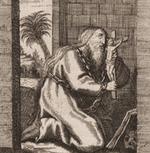Catechism of the Catholic Church
2387 The predicament of a man who, desiring to convert to the Gospel, is obliged to repudiate one or more wives with whom he has shared years of conjugal life, is understandable. However polygamy is not in accord with the moral law." [Conjugal] communion is radically contradicted by polygamy; this, in fact, directly negates the plan of God which was revealed from the beginning, because it is contrary to the equal personal dignity of men and women who in matrimony give themselves with a love that is total and therefore unique and exclusive." 180 The Christian who has previously lived in polygamy has a grave duty in justice to honor the obligations contracted in regard to his former wives and his children.
2388 Incest designates intimate relations between relatives or in-laws within a degree that prohibits marriage between them. 181 St. Paul stigmatizes this especially grave offense: "It is actually reported that there is immorality among you . . . for a man is living with his father's wife.... In the name of the Lord Jesus ... you are to deliver this man to Satan for the destruction of the flesh...." 182 Incest corrupts family relationships and marks a regression toward animality.
2389 Connected to incest is any sexual abuse perpetrated by adults on children or adolescents entrusted to their care. The offense is compounded by the scandalous harm done to the physical and moral integrity of the young, who will remain scarred by it all their lives; and the violation of responsibility for their upbringing.
2390 In a so-called free union, a man and a woman refuse to give juridical and public form to a liaison involving sexual intimacy.
The expression "free union" is fallacious: what can "union" mean when the partners make no commitment to one another, each exhibiting a lack of trust in the other, in himself, or in the future?
The expression covers a number of different situations: concubinage, rejection of marriage as such, or inability to make long-term commitments. 183 All these situations offend against the dignity of marriage; they destroy the very idea of the family; they weaken the sense of fidelity. They are contrary to the moral law. The sexual act must take place exclusively within marriage. Outside of marriage it always constitutes a grave sin and excludes one from sacramental communion.
2391 Some today claim a "right to a trial marriage" where there is an intention of getting married later. However firm the purpose of those who engage in premature sexual relations may be, "the fact is that such liaisons can scarcely ensure mutual sincerity and fidelity in a relationship between a man and a woman, nor, especially, can they protect it from inconstancy of desires or whim." 184 Carnal union is morally legitimate only when a definitive community of life between a man and woman has been established. Human love does not tolerate "trial marriages." It demands a total and definitive gift of persons to one another. 185
IN BRIEF:
2392 "Love is the fundamental and innate vocation of every human being" (FC 11).
2393 By creating the human being man and woman, God gives personal dignity equally to the one and the other. Each of them, man and woman, should acknowledge and accept his sexual identity.
2394 Christ is the model of chastity. Every baptized person is called to lead a chaste life, each according to his particular state of life.
2395 Chastity means the integration of sexuality within the person. It includes an apprenticeship in self-mastery.
2396 Among the sins gravely contrary to chastity are masturbation, fornication, pornography, and homosexual practices.
2397 The covenant which spouses have freely entered into entails faithful love. It imposes on them the obligation to keep their marriage indissoluble.
2398 Fecundity is a good, a gift and an end of marriage. By giving life, spouses participate in God's fatherhood.
2399 The regulation of births represents one of the aspects of responsible fatherhood and motherhood. Legitimate intentions on the part of the spouses do not justify recourse to morally unacceptable means (for example, direct sterilization or contraception).
2400 Adultery, divorce, polygamy, and free union are grave offenses against the dignity of marriage.
Notes:
English Translation of the Cathechism of the Catholic Church for the United States of America © 1997, United States Catholic Conference, Inc.



